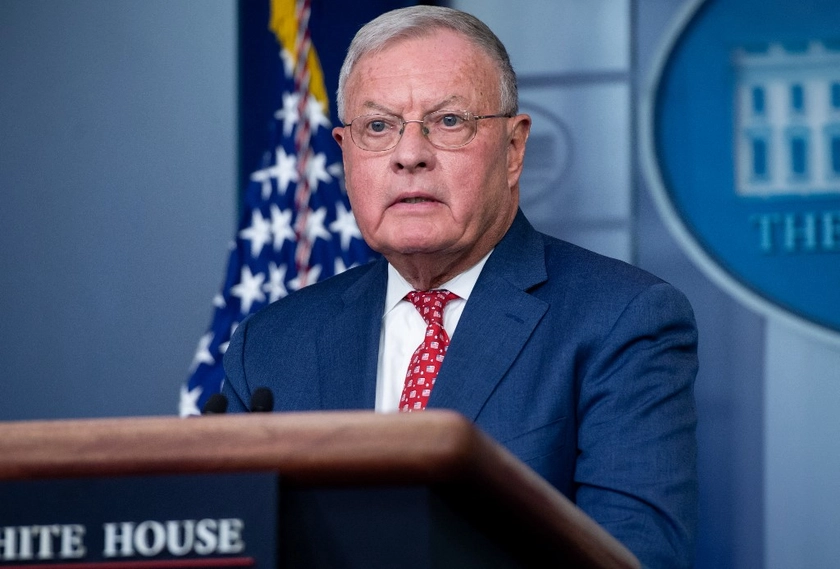A Georgian election conducted in the shadow of Russia’s war in Ukraine has descended into a political crisis amid reports of vote-rigging and accusations of Kremlin interference.
The ruling Georgian Dream party won a parliamentary majority in a contested vote on Saturday, which international observers and opposition parties said was rife with intimidation and fraud.
JOIN US ON TELEGRAM
Follow our coverage of the war on the @Kyivpost_official.
Opposition leaders, who have vowed to rebuild Western and Ukrainian relations hurt by Georgian Dream’s illiberal shift, have called for mass protest Tuesday night to denounce the vote. after
Invoking the war in Ukraine, Georgian President Salome Zurabishvili, who has accused Georgian Dream of moving toward Moscow’s orbit, compared the allegations of rigging to a “Russian special operation.”
Major opposition leaders have declared victory and suggested they would renounce their seats in parliament to deny Georgian Dream political legitimacy. Bidzina Ivanishvili, the billionaire oligarch who leads the ruling party, vowed earlier on the campaign trail to ban the major opposition parties.
Observation missions from the United States and the European Union over the weekend reported widespread fraud in Saturday’s vote, including intimidation, vote-buying and confiscation of voters’ identification cards.
Eoghan Murphy, a delegation lead in the Organization for Security and Cooperation in Europe’s observation mission, said pressure from Georgian Dream during and around the election “raised concerns” over whether voters could “cast their vote without fear.”
US Ends Permit for Russian Energy Transactions – Trump’s Sanctions Trump Card?
Public sector employees and people on social benefits were specifically targeted, according to the report, which alleged pressure on the vulnerable groups in 16 different municipalities.
The ruling party notably exploited how voters authorised their identities at polling stations to rig votes, according to George Melashvili, founder and president of the Tbilisi-based Europe-Georgia Institute.
For instance, Georgian Dream representatives are said to have voted several times by entering the voter identity numbers of citizens who did not plan to cast a ballot, said Melashvili.
Melashvili described the trick as a “digital carousel,” drawing a parallel with a scheme made notorious by Russian President Vladimir Putin that involves rotating voters between polling stations to cast multiple ballots.
For Melashvili, the ruling party’s illiberal tactics reflect Russia’s growing influence.
“It's a government which is doing everything that Russia demands from it,” said Melashvili. “Is it freedom? Is it sovereignty? Definitely not.”
As Georgian Dream has warmed relations with the Kremlin since Moscow invaded Ukraine two years ago, Ivanishvili has regularly suggested his opponents hope to use Georgia to open a second front in the conflict.
The billionaire, who amassed his fortune in Russia in the 1990s, lumped his opponents into an ambiguous “Global War Party” during the campaign to frame the election as a choice between war and peace.
Kyiv withdrew its ambassador two years ago after Georgia refused to take a firm stance against Russia. In September, the Ministry of Foreign Affairs condemned an advertising campaign depicting black-and-white bombed-out churches, cities and buses in the country next to images of colourful pictures of Georgian infrastructure.
By contrast, opposition leaders have promised to reset relations with Ukraine.
Tina Bokuchava, leader of the opposition United National Movement, slammed Ivanishvili on Friday for “picking the wrong side” in the conflict and vowed that an opposition government would “positively participate” in a Ukrainian victory.
“Ukraine is fighting not only for its territorial integrity and freedom, but that of Georgia and the region as a whole,” Bokuchava said in response to questions from the Kyiv Post. “We know that Russia will be defeated in Ukraine, and we know that Ukraine will prevail.”
When asked by the Kyiv Post whether an opposition government would be willing to provide Ukraine with weapons, Bokuchava said: “That is something that the college government would have to discuss.”
Zurab Girchi Japaridze, leader of a libertarian party in the Coalition for Change opposition bloc, said he believed Georgia should take a stronger stand against Russia and block internationally sanctioned companies from operating inside the country.
“We've been avoiding actually naming Russia as an aggressor,” Japaridze said. “We need to be more explicit.”
Yet Japaridze told the Kyiv Post that he opposes sending military aid to Ukraine, citing the need for greater investments in Georgia’s national defence budget.
Nika Gvaramia, one of the leaders of Coalition for Change, said after the results of Sunday’s election that he is prepared to lead Georgians in the streets to “change the pro-Russian government.”
“If it will be in a few days, it will be a few days; in a few months, it will be in a few months,” Gvaramia told the Kyiv Post. “But definitely, the result will be delivered.”
You can also highlight the text and press Ctrl + Enter












